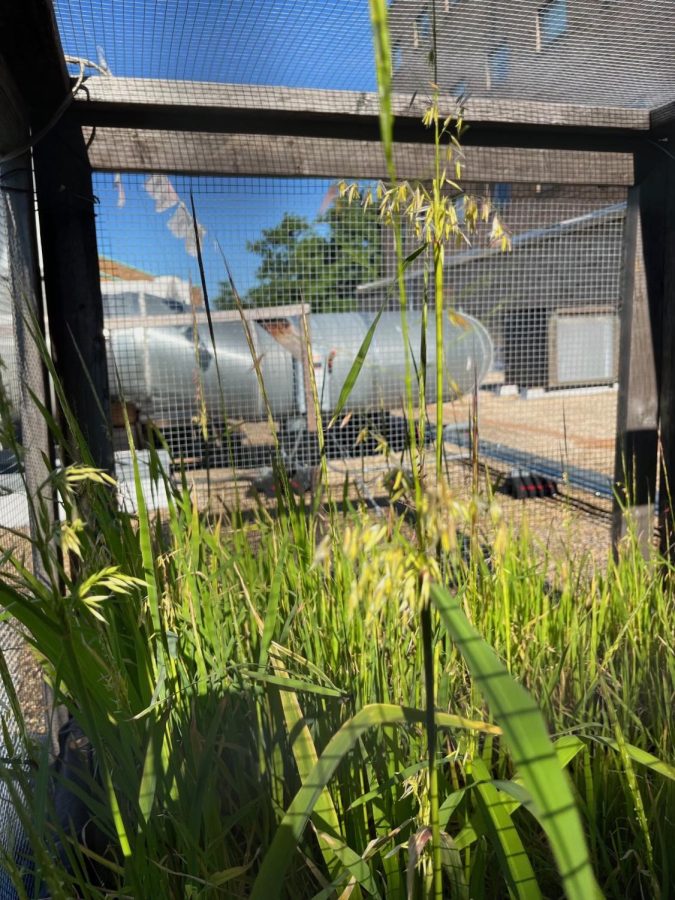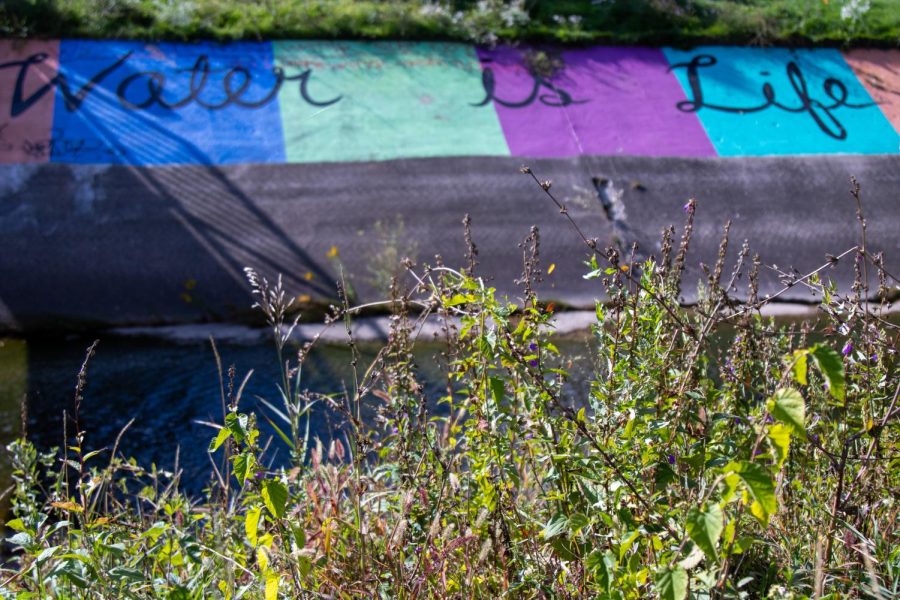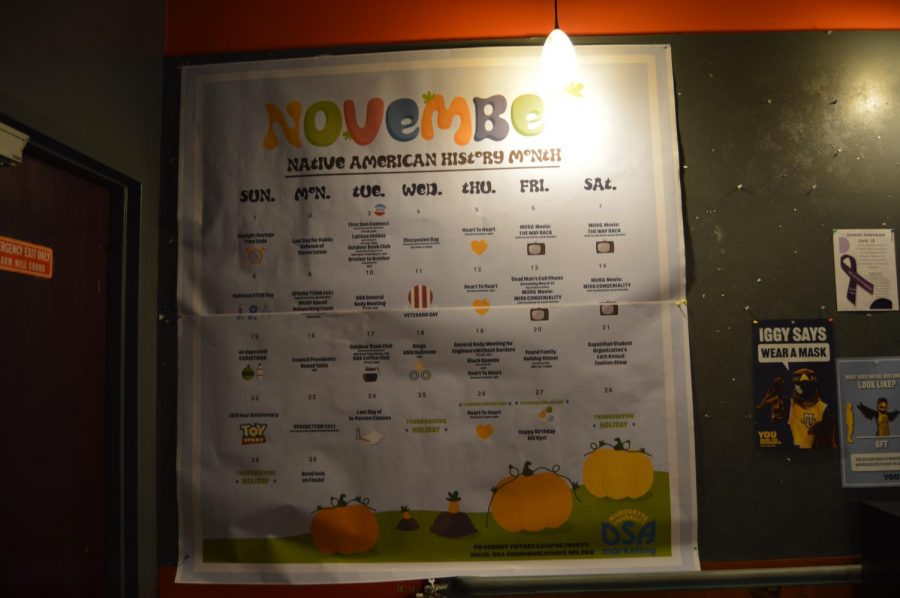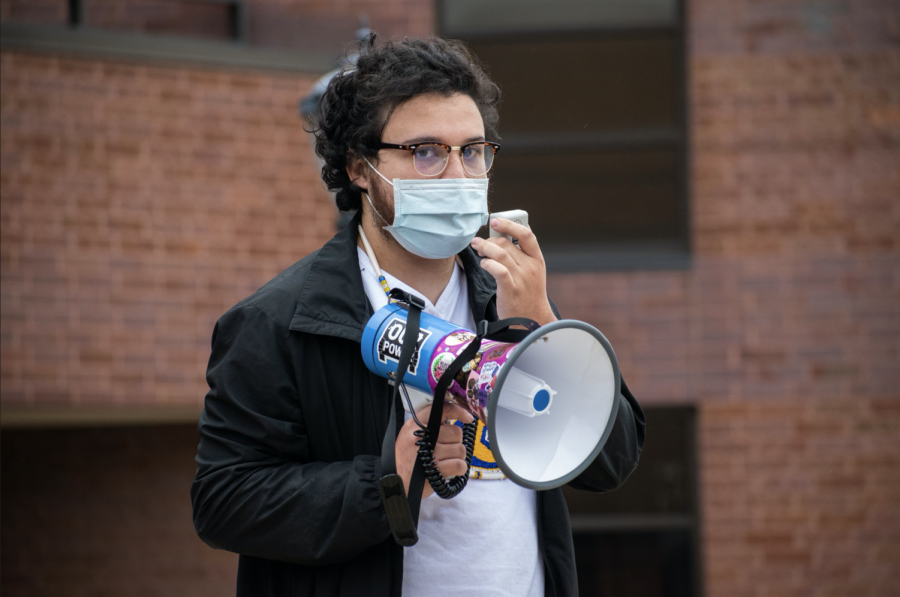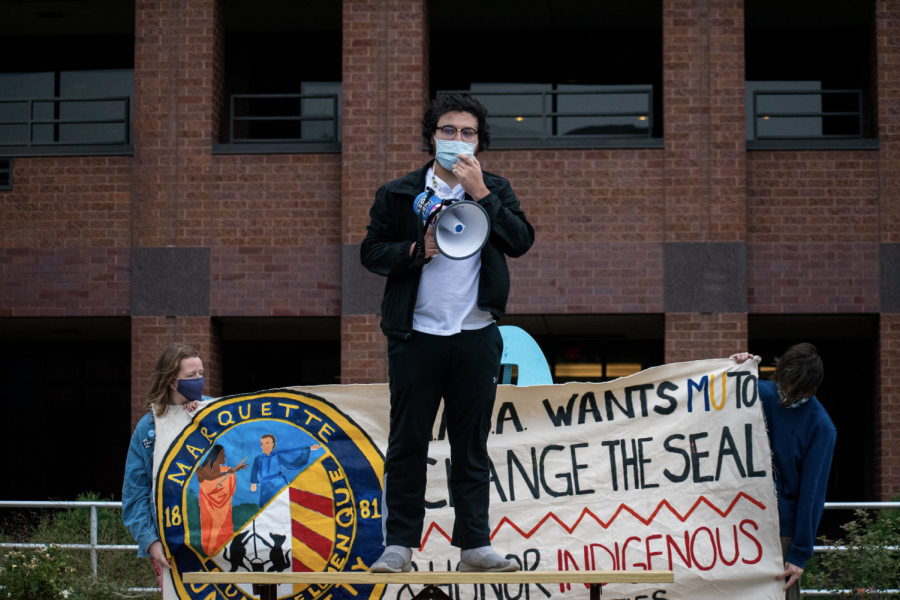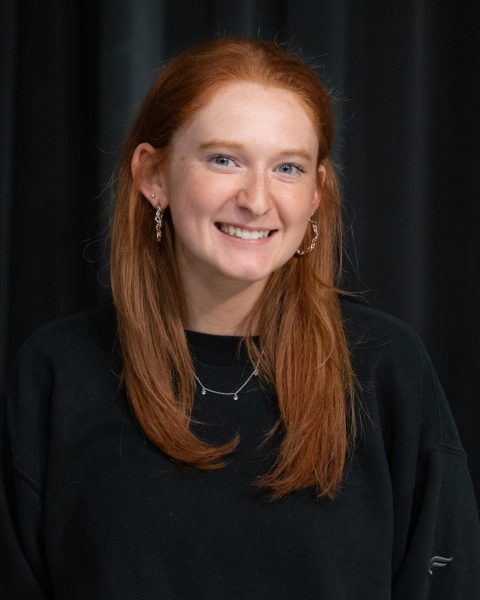Stepping onto the rooftop of the Wehr Life Sciences building, one might be surprised to discover what they find. In separate, four-by-four-sized ponds, seeds of natural wild rice grow in year-round cycles.
Michael Schläppi, a professor in the department of biological sciences, said that he had to obtain these seeds from a nursery in Wisconsin because wild rice has rarely been found near the Milwaukee area since colonial times.
“Native Americans actually used to grow wild rice in Milwaukee, but it was destroyed when European settlers came and founded Milwaukee and drained the river in which it was growing,” Schläppi said.
Schläppi said that the ultimate goals of this wild rice initiative are to eventually see wild rice once again grow in Milwaukee’s rivers and to give his students an opportunity to make biological observations.
Danielle Barrett, a senior in the College of Arts & Sciences and president of the Native American Student Association, has aided Schläppi in his wild rice observations since the project’s start. Barrett said that this grain has been special to Native Americans for centuries.
“Wild rice is a sacred grain that is held close and protected by the Native community,” Barrett said. “I admire that this project is working towards reintroducing the grain to its historical homelands.”
Schläppi said that growing the wild rice provided his biology students with a better understanding of the science behind DNA.
“I wanted to give my students a hands-on lab experience that they could learn from,” Schläppi said. “The purpose of this research study was to teach my students about how to do molecular biology, by looking at the genotype of wild rice and through wild rice paternity testing.”
Schläppi’s wild rice initiatives do not end when his students leave for summer break. Instead, student researchers from Marquette’s Indigeneity Lab are invited to participate in studies involving wild rice and its potential reintroduction back into Milwaukee rivers.
Founded in 2021, the Indigeneity Lab was created to provide both Native and non-Native students the opportunity to work together on extensive research projects and experiments outside of the classroom. These studies are centered around Indigenous topics that involve the Milwaukee community.
Working closely with the Native American Student Association as well as members of the Indigeneity Lab, Schläppi said that valuing the Native American culture remains at the heart of any and all of his research.
“We never want to conduct research that is against the beliefs of Native Americans,” Schläppi said. “Therefore, in everything we do, we do it in a sensitive way that honors and respects the traditions of Native Americans.”
Clare Camblin, a senior in the College of Communication, said that she has experience working on indigenous research projects, such as one that seeks to locate spots in Milwaukee with indigenous roots. Camblin said that she recommends that other Marquette professors consider following Schläppi’s example within their own curriculums.
“I would absolutely love to see more professors engage in labs such as this one with their students,” Camblin said. “Seeing and experiencing things with your own eyes makes such a difference, because it connects us to things we didn’t even know were possible or even existed right under our noses.”
For Barrett, this initiative is empowering students with Native American ties and said is a step in the right direction for the university.
“This project has had a large impact on me as an individual because it has provided me with a new understanding and awareness of Native American histories,” Barrett said. “I just think it is a really big stepping stone for the Native community and students at Marquette to be seen and heard.”
This story was written by Erin Howard. She can be reached at e[email protected]


